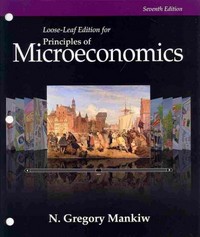Question
Empirically, it is true that married men are healthier on average than unmarried men. a. What is one explanation for how being married could cause
Empirically, it is true that married men are healthier on average than unmarried men. a. What is one explanation for how being married could cause men to be healthier? b. What is one explanation for how this relationship might not be causal (is correlation rather than causation)? c. Suppose I wanted to run an OLS regression of men's health on their marital status. Give three variables that you would suggest as controls for omitted variables bias. d. Now suppose I want to employ an individual fixed effects strategy. This would mean that I have observations for each man at different points in time, and for at least some men, I observe them both married and unmarried. Intuitively, how does this strategy help me identify the causal effect of marriage? What problem does it not solve? e. If I wanted to try to find an instrumental variable for marriage, to help me identify the causal effect of marriage, what two conditions would this variable need to satisfy? f. Finally, imagine that some states decided to make marriage mandatory for men. How could we use this policy change to identify the causal effect of marriage? What is the name of this strategy?
Step by Step Solution
There are 3 Steps involved in it
Step: 1

Get Instant Access to Expert-Tailored Solutions
See step-by-step solutions with expert insights and AI powered tools for academic success
Step: 2

Step: 3

Ace Your Homework with AI
Get the answers you need in no time with our AI-driven, step-by-step assistance
Get Started


